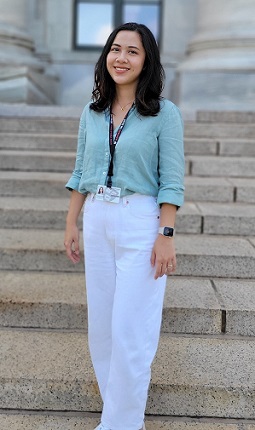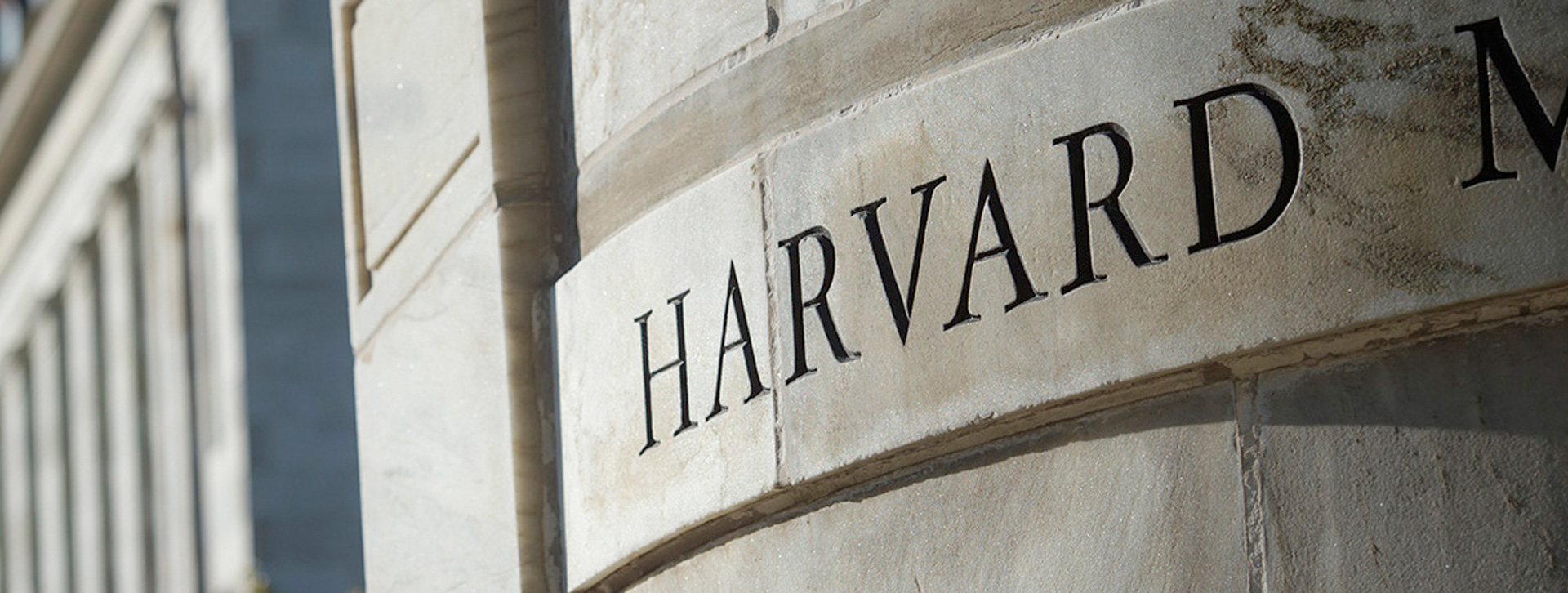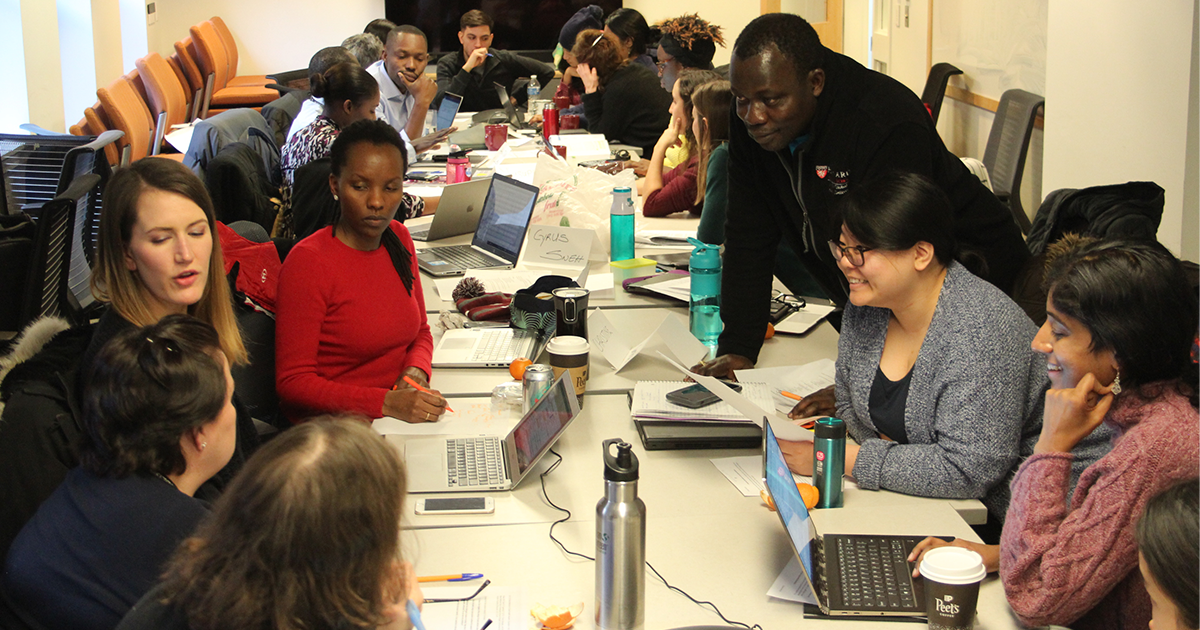MMSc-GHD Student Celline Wijaya
 A conversation with
A conversation with
Celline Wijaya, MBBS, MD
Jember, East Java, Indonsia
MMSc-GHD Class of 2024
By Bailey Merlin
Before joining the program, Celline Wijaya was a physician in Indonesia. Not long after starting her career, COVID-19 swept the world and changed her thoughts about healthcare delivery. As we chat, I learn that the loss of friends and family prompted the shift to public health. With a new fire in her heart, Celline started to search for a way to augment her education. In a sea of public health programs, she found the Global Health Delivery program.
Like many Global Health Delivery students, Celline’s view on health care has changed fundamentally. With a full fall semester under her belt, I sat down with her via Zoom to talk about classes, surprises, friends, and her upcoming thesis project in Jember, Indonesia.
BAM: What about the Global Health Delivery program stood out to you?
CW: The field research. The other MPH programs only had capstone paper projects. With field research, you actually get to practice what you preach. Here, you learn about the theories and then actually implement them outside of the program right away, not after you graduate. That was interesting. And, of course, Paul Farmer. I was sad that I didn’t get to meet him because I watched Bending the Arc and knew about Partners In Health. When I learned that this program was established by him, it was like, “Yep, this is it.”
BAM: When doing your graduate school research, what did you find the biggest difference between the MMSc and the MPH?
CW: Aside from the field research and the fact that this program is longer. I’d say that the MPH is very common in Indonesia. We have a lot of MPH graduates and programs, but I only know of only one MMSc-GHD program. That was a strong point. It’s unique. There have been, I think, 3 Indonesians in the GHD program, one of whom has graduated so far. When I read the website [before joining], the sense that I got was that I would be a better fit because of the emphasis placed on low-resource and developing countries. The knowledge from this program is more relevant for me to implement in my country.
BAM: You’ve been here for over 6 months now. Has anything surprised you so far?
CW: How close [students] really are with our faculty. Joia [Mukherjee] is like a celebrity for me, and I get to see her, and she gets to teach class. And everyone knows everyone! I mean the students, we’re not just numbers or names. We know each other personally. The faculty, too. It makes me feel special...There are a lot of MPH graduates, a lot. But there are only a few MMSC-GHD students.
BAM: I have always loved that about your cohorts Every global health delivery class feels so unified. As far as project goes, tell me about your thesis. What are you hoping to accomplish?
CW: My thesis is about maternal health. I’m studying emergency obstetrical and neonatal care in Jember, Indonesia. It’s a small town in East Java. I was born and raised there, and Jember has the highest maternal mortality rate in East Java. The question arises: Why? Even though they already have a lot of international aid programs, maternal mortality is still high. So, my thesis is going to look into that more. Also, one thing that I love about this program is how they teach us to do things ethnographically and qualitatively. And so my thesis is gonna be my first qualitative research ever because in medical school, we are only taught the quantitative.
BAM: That’s a very ambitious goal. Who’s your mentor?
CW: Byron [Good]. I love Byron. We actually met before I came into the program. We met in Indonesia because he goes back and forth to Indonesia every year. And met Mary Jo [Good] as well. I even went scuba diving with Mary Jo, which was very fun. But now, Byron is my primary mentor. I think one of the most interesting things is this was not my initial thesis plan. I was planning to look at to look at the health-seeking behavior of women. I’m still trying to answer why maternal mortality is so high. Are women not coming to the clinics? Do they not know the danger signs of pregnancy that made them late in coming to the clinic?
And after I told Byron that, do you know what he said? He said, “I don’t like your thesis topic.” (laughs) I said, “Why?” And tells me that we have to stop perpetrating the culture of blaming the patients. He said that, and it has stuck with me ever since because that’s not a perspective I have ever heard of or gotten from any of my lecturers back in Indonesia. And I think that perspective is very unique to this program and Paul Farmer. They don’t blame the patients. The research does not expect the patient to not come into the clinics. I mean, no one wants to die. No pregnant woman wants to die, so don’t look at why they’re not coming to the clinic. Byron told me to look at the system instead.
BAM: I think that the program’s particular approach to care is unfortunately unique. Now that you’re learning a whole other philosophy on health, what do you hope? What do you hope to take back to your job after graduation?
CW: So far, I have had a lot of changes in perspective, mostly in looking at patients because in Indonesia, in developing countries, and in medical school, we are taught that as providers of care, we are somehow above the patients. I see this in my friends in the way they treat patients. It’s more paternalistic. We assume the patients don’t know anything. For me, that’s quite unfortunate. On a more individual level, this program has taught me that lesson, as simple as it is.
As a medical student, I would get patients who would come in and talk about their symptoms, and they would start telling their life stories. We were trained to actually tune out those life stories and just focus on the symptoms or keywords. But now, after being in this program for six months, I realize that we cannot actually turn out those life stories that that’s also important. That’s also part of the complaint. So, I think on a more individual level, that’s what’s going to change. I’m learning how to listen.
BAM: Is there anything else you would like to share about your time here?
CW: I love the program. I love the fact that we are unique. I love the fact that everyone is so close. I love the fact that the program respects us. If we give any input, there‘s an immediate change. I love my friends, love, love, love my friends. I feel like we all, though we are different ages from different countries, we fit in together. I feel like that’s like the well-done job of [faculty and staff] in curating the cohort. Now I have a lot of friends from a lot of different countries that I have never actually even known about before, and for me, that’s amazing.
BAM: It warms my heart to hear that. My last question is: What advice do you give prospective students?
CW: I think if you apply to this program, you have to have the right mindset. We were talking about the patient-centered approach that this program has and Paul Farmer and Partners In Health...The philosophy they teach here can be quite a surprise. As a provider and from my years of training in medical school, it’s a very different approach to what we were taught. For prospective students, you must understand that Global Health is a whole different philosophy.
This interview has been edited and condensed.
Read more about students in the Master of Medical Sciences in Global Health Delivery program.
Learn more about the Master of Medical Sciences in Global Health Delivery program on our website.

